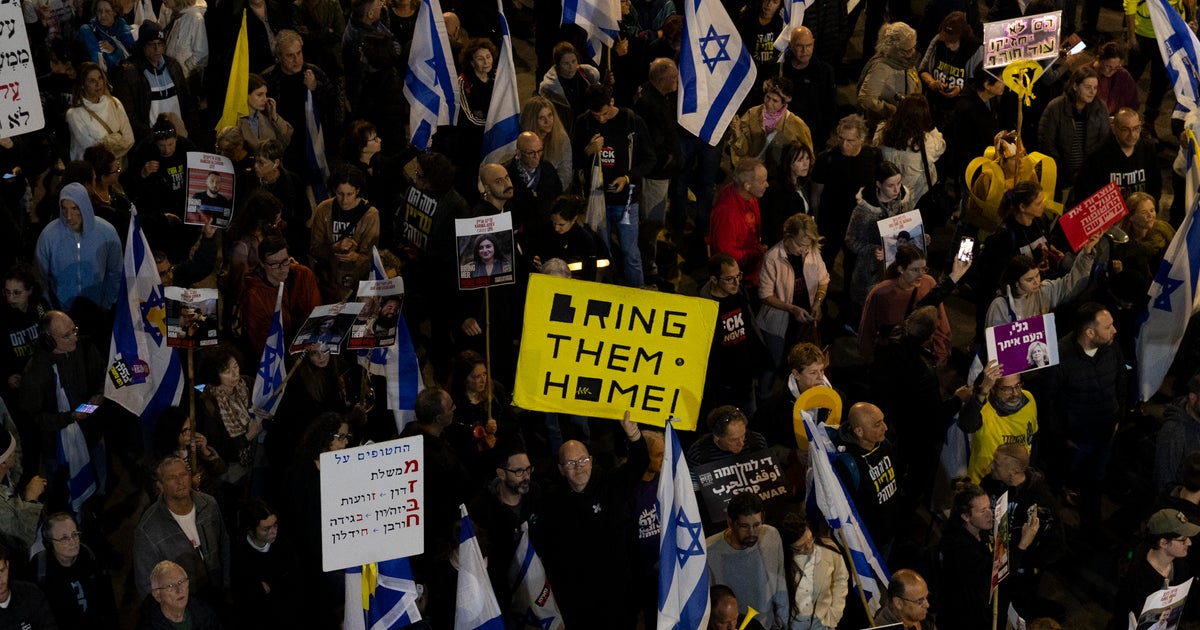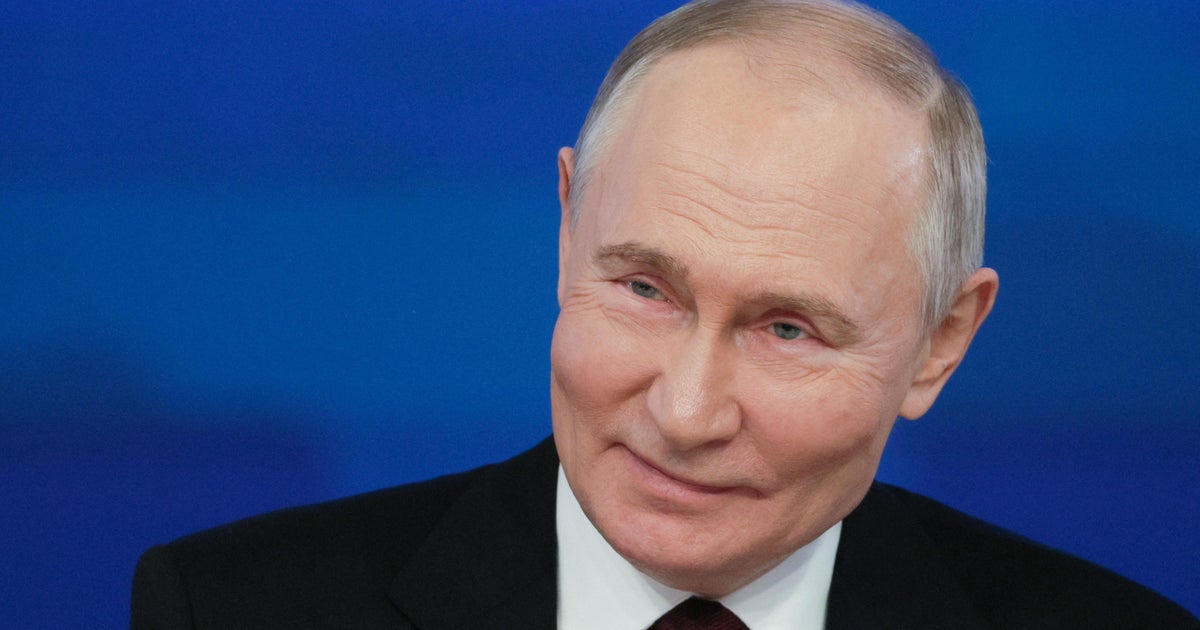Myanmar anti-coup protests persist despite a ban and police resorting to force
Yangon, Myanmar — Large crowds demonstrating against the military takeover in Myanmar again defied a ban on protests Wednesday, even after security forces ratcheted up the use of force against them and raided the headquarters of the political party of ousted leader Aung San Suu Kyi. Witnesses estimated that tens of thousands of protesters, if not more, turned out in Yangon and Mandalay, the country's biggest cities. Rallies also took place in the capital Naypyitaw and elsewhere.
The protesters are demanding that power be restored to Suu Kyi's deposed civilian government. They're also seeking freedom for her and other governing party members since the military detained them after blocking the new session of Parliament on Feb. 1.
"As part of Generation Z we are first-time voters. This is our first time to protest as well," said one student who declined to give her name for fear of harassment. "They negated our votes and this is totally unfair. We do not want that. We hope they release our leaders and implement a real democracy."
The military says it acted because November's election, which Suu Kyi's National League for Democracy won in a landslide, were marred by irregularities. The election commission had refuted the allegation.
Some demonstrators in Yangon gathered at foreign embassies to seek international pressure against the coup.
A small group outside the Japanese Embassy held signs and chanted "We want democracy, we get dictators!" They sat in several children's wading pools, three or fewer per pool, in what appeared to be a tongue-in-cheek way of showing compliance with an emergency law that bans gatherings of more than five people.
Others marched through the city, chanting and waving flags of Suu Kyi's party.
Another group hauled a fake coffin as part of a mock funeral for Senior Gen. Min Aung Hlaing, the military chief who is the country's new leader.
The burgeoning protests and the junta's latest raid suggest there is little room for reconciliation. The military, which ruled directly for five decades after a 1962 coup, used deadly force to quash a massive 1988 uprising and a 2007 revolt led by Buddhist monks.
A violent crackdown
In Naypyitaw and Mandalay on Tuesday, police sprayed water cannons and fired warning shots to try to clear away protesters. In Naypyitaw, they shot rubber bullets and apparently live rounds, wounding a woman protester, according to witnesses and footage on social media. The reports could not be independently confirmed.
Human Rights Watch cited a doctor at a Naypyitaw hospital as saying the woman was in critical condition. The doctor said the woman had a projectile lodged in her head, believed to be a bullet that had penetrated the back of the right ear, and had lost significant brain function. The doctor said a man had been also been treated with an upper body wound consistent with that of live ammunition.
State television network MRTV, in one of its few reports on the protests, on Tuesday night broadcast scenes it claimed showed the protesters were responsible for the violence.
"Myanmar police should immediately end the use of excessive and lethal force" the New York-based watchdog urged.
The United Nations also issued a statement expressing "strong concern" over the reported used of force against protesters.
"I call on the Security Forces to respect human rights and fundamental freedoms, including the right to peaceful assembly and freedom of expression," Ola Almgren, the UN's Humanitarian Coordinator in Myanmar, said in the statement. "The use of disproportionate force against demonstrators is unacceptable."
"Myanmar military personnel and police need to know that 'following orders' is no defense for committing atrocities and any such defence will fail, regardless of their place in the chain of command," Thomas Andrews, U.N. special rapporteur on human rights in Myanmar, said in a separate statement issued in Geneva. He said "hundreds of arbitrary detentions" had been recorded in Myanmar since the coup.
No major incidents were reported in connection with the big turnout at Wednesday's protest in Mandalay. Social media users said 82 people who had been arrested were freed due to the work of local lawyers.
Monks, medics and musclemen
Medical students and personnel and Buddhist monks were among a huge cross-section of residents who marched in Mandalay, but the most social media buzz was generated by a contingent of shirtless muscled men with well-defined six-packs who were said to be members of a fitness gym.
The military on Tuesday night raided the national headquarters of Suu Kyi's party, which before the military seized power had been slated to take power for a second five-year term.
Kyi Toe, a spokesman for the party, wrote on Facebook that the army broke into the headquarters in Yangon and another office and took away documents and computer hardware. The headquarters was shuttered Wednesday.
The United States "strongly" condemned the violence against demonstrators. State Department spokesman Ned Price said Tuesday that Washington would review assistance to Myanmar so that those responsible for the coup face "significant consequences."
"We repeat our calls for the military to relinquish power, restore democratically elected government, release those detained, and lift all telecommunication restrictions, and to refrain from violence," Price said.
New Zealand suspended all military and high-level political contact with Myanmar, Foreign Minister Nanaia Mahuta announced in Wellington, adding that any New Zealand aid should not go to or benefit Myanmar's military government.
The U.N. Human Rights Council, the 47-member-state body based in Geneva, is to hold a special session on Friday to consider "the human rights implications of the crisis in Myanmar."
Britain and the European Union spearheaded the request for the session, which will amount to a high-profile public debate among diplomats over the situation in Myanmar and could lead to a resolution airing concerns about the situation or recommending international action.







